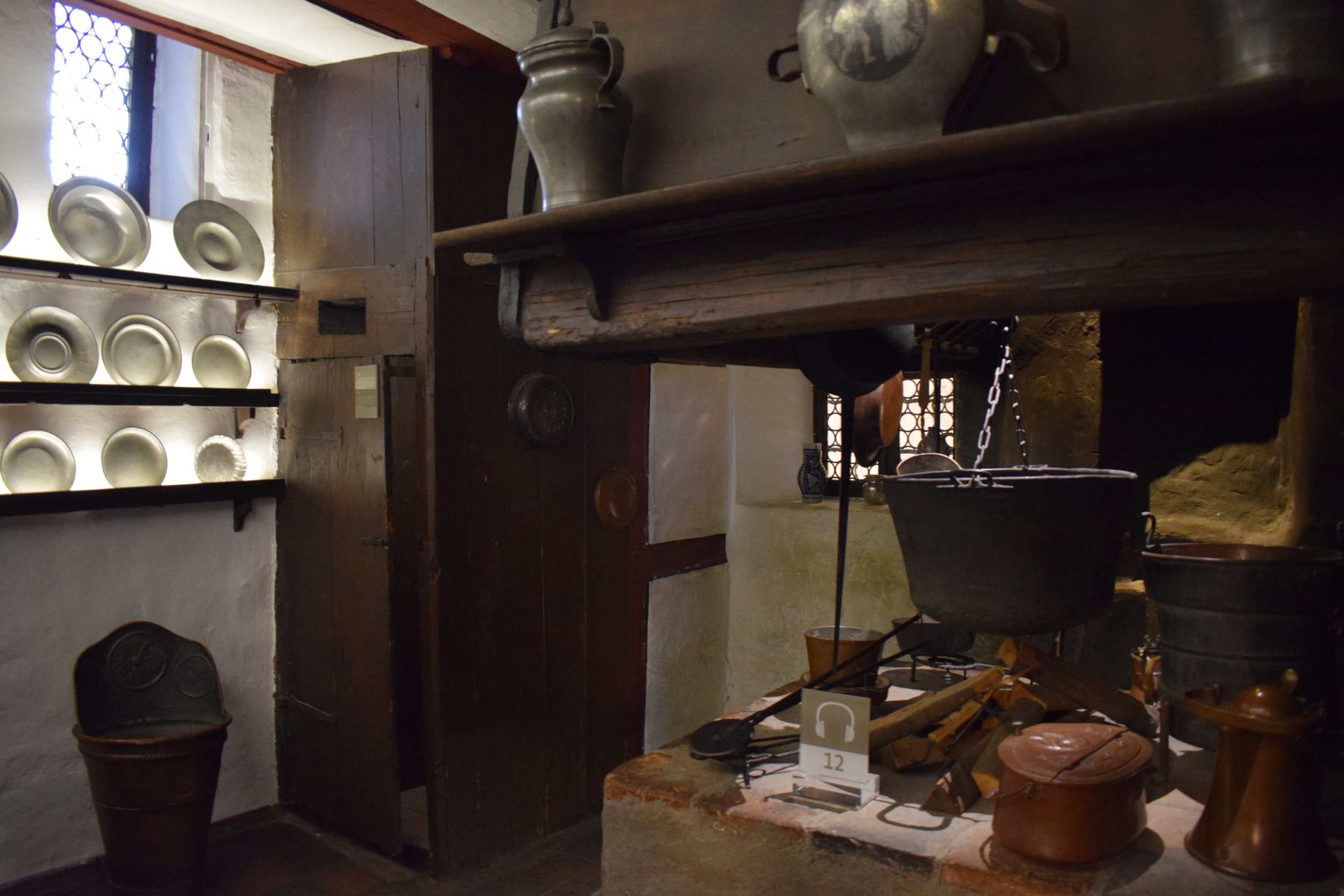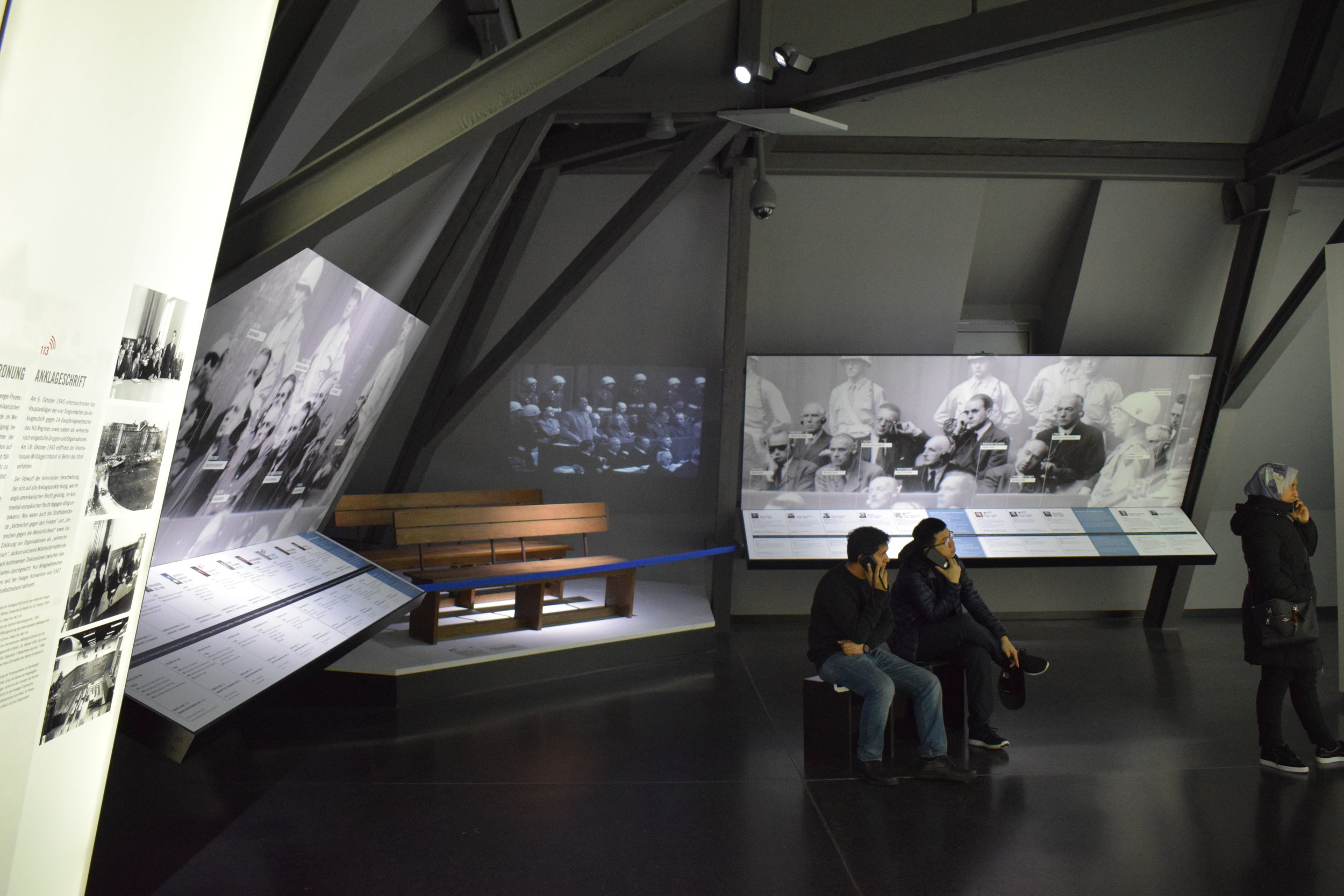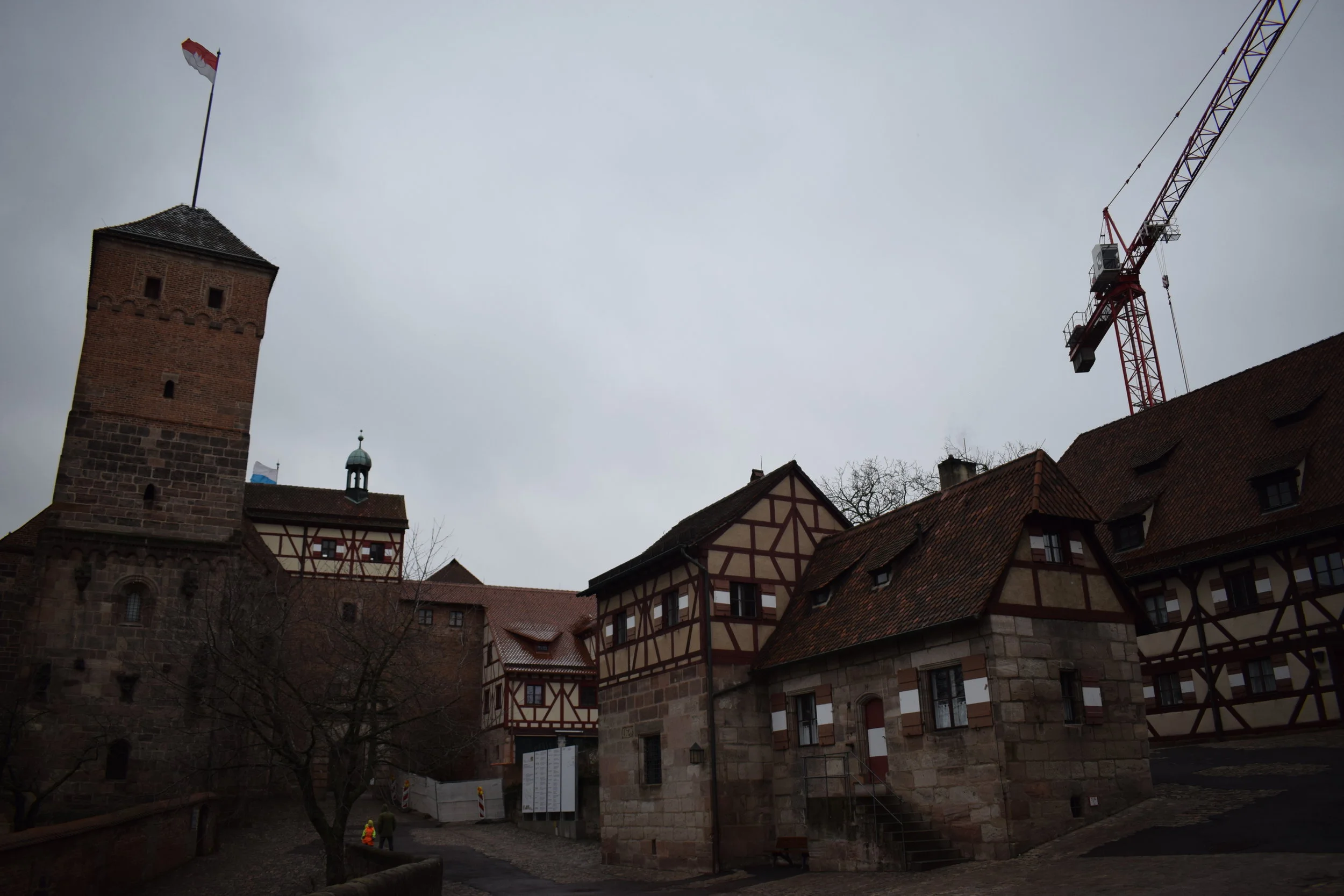Cheap, convenient and no days off work: Make Nuremberg your next weekend break
/Note: This post contains sponsored content and/or links.
For a while I didn’t know much about Nuremberg. I knew that Everton were 2-0 victors in the city back in 2008 and I had also heard of the Nuremberg Trials, but my recollections really ventured no further than that.
But thanks to Ryanair launching a direct route from Manchester to Nuremberg at the end of 2016, all that was about to change – albeit just over 12 months later.
Browsing for a cheap break in January was on the agenda at the back end of last year, though that was only half the battle. I had just found out I was being kept on at my new job beyond the conclusion of my internship and I wanted to make sure I conserved some holiday days. Going away in the New Year would have to be a weekender.
Already the world had been whittled down to a handful of countries on the continent, and even fewer of those were in price range – then I came across Nuremberg.
Making it the Brandabburg Gate in Berlin.
Enjoying a riverside view in Hamburg.
My lack of knowledge about Bavaria’s second city didn’t account for much, in fact it meant there would be even more to discover. Plus, I’d already enjoyed two German escapades – one to the capital Berlin and another in the Hanseatic city of Hamburg. Better yet the flights were only £20, leaving from Manchester on Friday evening and returning late on Sunday afternoon meaning that I had two solid days of urban exploration ahead of me, without the hassle of using up those precious work holidays.
The Imperial Suite
The flight out on Friday was quick and easy, and the Nuremberg U-Bahn shuttled me from the airport into the city centre without any hassle. I was cutting it fine, but I had enough time to make dinner – though there was the small manner of getting to my accommodation.
I had been put up in Nuremberg Castle at the DJH Youth Hostel, a mix of private rooms and dormitories inside what used to be the castle stables. A sign outside the entrance read “Guests Only,” because people not staying there had been trying to take a look inside, rather than paying to go to the castle’s main exhibition just a few feet away.
Though I could see why they wanted to have a sneak peek, as the hostel was an example of fine restoration, complete with a long-sloping roof and a tower, which is where my room was. But even as a guest I couldn’t afford to potter around for too long, as I had to head back out into the night to find some food.
The hungry traveller
It was getting late now, but I decided to stop by Auguste Premium Junk Food, an eatery recommended to my by Nuremberg’s tourism board – Tourismus Nürnberg – serving up tasty burgers made solely of organic, regional and sustainable produce, with an eclectic décor and upcycled furnishings to fit in with the whole eco-friendly vibe. To be fair, it looked really nice, but unfortunately, I was informed on arrival that the kitchen was closed.
HANS IM GLÜCK sits just inside the city gate.
It didn’t take too long to snuff out somewhere that was open a little later, and I settled on the atmospheric HANS IM GLÜCK, getting my meat patty and bun fix while sat at a long table and bench to ensure I would get the true German dining experience.
Home comforts
The Friday night fever was short and sweet, but Saturday was where the real party was at. Equipped with a NÜRNBERG CARD, I was ready to crack on with a day of exploration. It was going to be convenient and cheap, because entry to all the attractions I had planned was covered, and the card allowed me unlimited access to all public transport throughout the Nuremberg and Fürth region, all for the decent price of €28.
The NUREMBERG CARD is a big money saver and helps make any trip to the Bavarian city seamless.
But first I wanted to get educated, doing so by learning all about Nuremberg’s rich history and heritage as an imperial city, frequented by kings and emperors alike as the unofficial capital of the German Empire. That was made possible at the City Museum inside the incredible Fembo House, a mix of elegance and extravagance serving as a tapestry on which the story of the past several centuries has been woven.
Moving from one house to the next, I was soon in the former abode of Nuremberg’s most famous son – Albrecht Dürer. This iconic figure was a painter, printmaker and theorist, well-known for his work titled “Self-Portrait.” This icon of the city, whose name is adorned on streets, squares and even the airport, lived in an incredible corner house just inside the city walls which, much like the building in which the City Museum resides, was one of the 10% of residential buildings that, miraculously, survived the war.
One of Nuremberg's most iconic shots, looking towards the former house of Albrecht Dürer.
A copy of Dürer's famous "Self-Portrait."
The kitchen complete with toilet which was installed when Dürer became too ill to use to outside lavatory.
Wartime importance
I find World War II a particularly interesting subject, and although we dabbled in the matter at school, it is my travels to affected regions which have developed my understanding of its events. Nuremberg is one such area and had global significance during one of Europe’s most troubled hours.
It was really interesting to see the former Nazi Party Rally grounds and the corresponding Documentation Center. The largest still- intact monumental structure built by the National Socialists and the Kongresshalle was the ideal starting point to explore the architectural traces left by the totalitarian regime.
Even more poignant, and quite possibly my favourite attraction, was the Memorium Nuremberg Trials at the Palace of Justice. Going around the extensive exhibit, which gives a cross-section of everything that went into the tribunals of several Nazi officials, was absolutely fascinating. As a journalism graduate I particularly enjoyed the section about the media involvement, as well as reading about the trials’ influence of the development of international criminal law. I also got the chance to go inside Courtroom 600, where the Nazi members in question were tried, and I honestly couldn’t believe how small it was, considering it was the site of an event of such mass importance.
Mopping up
The worst thing about my Nuremberg adventure was that there was so much to do, yet so little time in which to do it. But maximising my two days was a priority and I wanted to get as much out of it as possible. In between the main attractions I stopped by Hauptmarkt, Nuremberg’s heart and the area in which its revered Christmas markets are held each year. I missed the boat on that one, but I was able to catch their daily market and enjoyed the exterior of the Church of Our Lady as well as the Beautiful Fountain with its magic golden ring.
Nuremberg is a photogenic place and I wanted to make sure I had enough time to wander around the medieval Old Town and get some good ol’ holiday snaps. The weather didn’t help me out, but I still got some good ones to add to my collection.
A spot of indulgence
Unless it involves seafood, it’s rare that I go to a place and don’t try whatever comes at the end of “it is famous for…” Nuremberg has two consumables that top its list of homegrown food and drink. The first is red beer, poured at Hausbrauerei Altstadthof. It was a nice tipple, but not nearly as impressive as its other delicacy – the Nürnberger bratwurst.
Best served at Bratwursthäusle, the city’s oldest restaurant serves these traditional grilled sausages with a variety of sides in an atmospheric setting where customers are seated around the open grill. This was definitely my favourite meal of the trip as I was tasting real Nuremberg fare in a restaurant that has been going since 1313. That’s my kind of eating!
The weekend end
When it was time to depart for the airport, I felt a tinge of sadness. I only wished I had more time to spare – a few extra hours in which I could keep on discovering.
And then I realised – I can always come again without breaking the bank or sacrificing my holiday allowance. The sadness soon subsided and I began to review in my mind a fantastic weekend in this place which, 48 hours earlier, I knew little about.


















































There’s so much to see and do in the techno capital of the world, so, here are five things you have to do in Berlin!